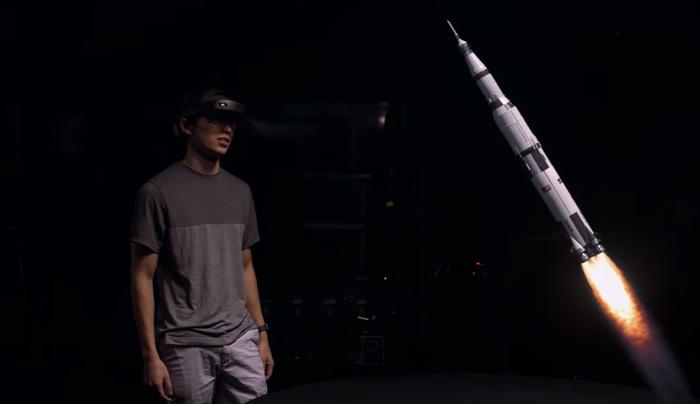Epic releases video of HoloLens 2 “Apollo 11: Mission AR” demo shown at Build
2 min. read
Published on
Read our disclosure page to find out how can you help Windows Report sustain the editorial team Read more

News on Microsoft’s augmented reality front has been relatively quiet as the company presumably ramps up development on its sequel to its HoloLens.
As a teaser of what HoloLens 2 will be capable of in the future, Epic Games released its HoloLens Apollo 11: Mission AR demo, according to a report from Road Tovar. The Epic Games Apollo demo was first revealed earlier this year during Microsoft’s developer conference in May and since then the studio has gone on to refine the refine its interactive experience of famed astronaut Neil Armstrong’s first steps on the Moon in 1969.
Other interactive sessions in the Apollo demo include the lunar landing and a Saturn V launch, all comprised of over 7 million polygons rendering physically-based environments with fully dynamic lighting and shadows as well as layered and volumetric animations for a more realistic experience.
While Microsoft has hinted at the power of the upcoming HoloLens 2 headset, it seems that Epic Games used a bit of an end-around to deliver its holographic bits to the device that included real-time wireless streaming to the device from a network PC running the studio’s most current version of Unreal Engine, UE 4.23.
UE 4.23 is the Epic Games latest version, which now comes with support for HoloLens 2 development that houses tools for emulation, finger tracking, voice input, spatial anchoring, meshing, gesture recognition, and native deployment.
Per a company spokesperson, HoloLens 2 isn’t due for release until sometime later this year (2019), at which point, enthusiasts, developers, and enterprise will finally be able to test the limits of Microsoft’s latest vision for augmented reality.









